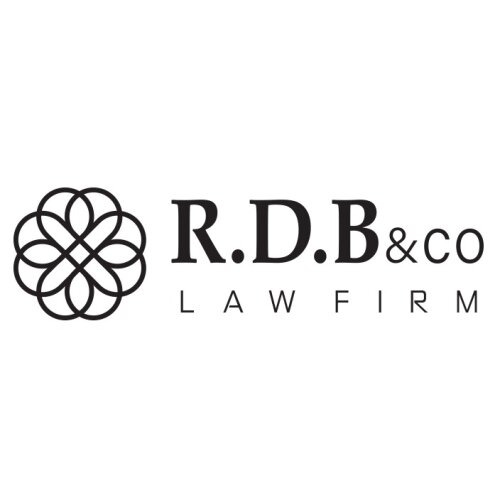Best Hiring & Firing Lawyers in Petaẖ Tiqwa
Share your needs with us, get contacted by law firms.
Free. Takes 2 min.
List of the best lawyers in Petaẖ Tiqwa, Israel
About Hiring & Firing Law in Petaẖ Tiqwa, Israel
The field of Hiring & Firing law in Petaẖ Tiqwa, Israel, mirrors the broader legislative framework of labor laws in Israel while also needing to adhere to any specific municipal guidelines. This area of law governs the processes, rights, and legalities involved in hiring new employees, managing existing staff, and terminating employment. These laws aim to ensure fair treatment of employees, prevent discrimination, and provide a clear framework for resolving disputes between employers and employees.
Why You May Need a Lawyer
Engaging a lawyer can be crucial in numerous scenarios related to Hiring & Firing. Common situations include:
- Drafting or reviewing employment contracts to ensure compliance with local laws.
- Navigating the legal requirements for terminating an employee to avoid wrongful termination claims.
- Handling disputes regarding employee rights, such as unpaid wages, discrimination, or unfair dismissal.
- Understanding the legal obligations related to employee benefits, sick leave, and parental leave.
- Defending or pursuing litigation regarding labor law violations.
Local Laws Overview
The key aspects of local labor laws in Petaẖ Tiqwa, Israel, that are especially relevant to Hiring & Firing include:
- Employment Contracts: Contracts must comply with the Mandatory Provident Fund Law and include details on salary, job description, work hours, and termination notice periods.
- Equal Opportunity: Laws prohibit discrimination based on gender, race, religion, age, disability, or sexual orientation.
- Termination Procedures: Employers must follow legal guidelines for termination, including providing written notice and proper severance pay if applicable.
- Rights to Leave: Regulations around vacation days, sick leave, maternity/paternity leave, and other forms of leave must be strictly followed.
- Workplace Policies: Employers must establish clear workplace policies and adhere to safety standards as outlined by labor laws.
Frequently Asked Questions
1. Is an employment contract necessary?
Yes, an employment contract is mandatory and should detail all terms of employment to ensure clarity and compliance with legal standards.
2. What notice period is required for terminating an employee?
The required notice period varies depending on the length of employment, ranging from one day to a month. It's essential to follow the specific guidelines provided by law.
3. What are the legal grounds for immediate dismissal?
An employer can immediately dismiss an employee without notice only under certain conditions, such as severe misconduct or criminal activity, but this must comply with legal standards.
4. Are there laws protecting pregnant employees?
Yes, pregnant employees are protected from dismissal without a special permit from the Ministry of Labor, and they are entitled to maternity leave and benefits.
5. What constitutes wrongful termination?
Wrongful termination includes firing an employee in violation of their contract, without proper notice, or based on discriminatory practices.
6. Can employers change terms of employment unilaterally?
No, changes to the terms of employment generally require mutual consent, and significant changes might require a formal amendment to the employment contract.
7. What rights do part-time employees have?
Part-time employees are entitled to the same basic rights as full-time employees, including minimum wage, leave entitlements, and social benefits, proportionate to their work hours.
8. Are non-compete clauses enforceable?
Non-compete clauses can be valid if they are reasonable in scope, duration, and geographical area. They should not unduly restrict an employee's future employment opportunities.
9. How can an employee contest an unfair dismissal?
An employee can file a complaint with the Ministry of Labor, and if necessary, pursue legal action through the labor courts for wrongful termination.
10. Are employers required to provide a severance package?
Severance pay is generally required for employees who have been terminated after working for at least one year continuously, subject to specific legal stipulations.
Additional Resources
For more information and legal help, consider reaching out to the following resources:
- The Ministry of Labor, Social Affairs, and Social Services
- The Histadrut (General Organization of Workers in Israel)
- Local employment and labor law firms in Petaẖ Tiqwa
- Legal clinics and advisory services offered by academic institutions
- Online legal resources and databases related to Israel's labor laws
Next Steps
If you need legal assistance with Hiring & Firing issues, follow these steps:
- Identify Your Needs: Understand the specific issue you need help with, whether it's drafting a contract, disputing a termination, or another concern.
- Consult with a Legal Professional: Find a lawyer specializing in labor law in Petaẖ Tiqwa. Initial consultations can provide valuable insight into your situation.
- Gather Documentation: Collect all relevant documents, including employment contracts, correspondence, and any other related paperwork.
- Follow Legal Advice: Adhere to the legal guidance provided by your lawyer to ensure compliance with local laws and protect your interests.
- Consider Mediation: In some cases, mediation can be a less adversarial and more cost-effective way to resolve disputes.
Taking these steps can help you navigate the complexities of Hiring & Firing laws and ensure you are adequately prepared to handle any legal challenges that arise.
Lawzana helps you find the best lawyers and law firms in Petaẖ Tiqwa through a curated and pre-screened list of qualified legal professionals. Our platform offers rankings and detailed profiles of attorneys and law firms, allowing you to compare based on practice areas, including Hiring & Firing, experience, and client feedback.
Each profile includes a description of the firm's areas of practice, client reviews, team members and partners, year of establishment, spoken languages, office locations, contact information, social media presence, and any published articles or resources. Most firms on our platform speak English and are experienced in both local and international legal matters.
Get a quote from top-rated law firms in Petaẖ Tiqwa, Israel — quickly, securely, and without unnecessary hassle.
Disclaimer:
The information provided on this page is for general informational purposes only and does not constitute legal advice. While we strive to ensure the accuracy and relevance of the content, legal information may change over time, and interpretations of the law can vary. You should always consult with a qualified legal professional for advice specific to your situation.
We disclaim all liability for actions taken or not taken based on the content of this page. If you believe any information is incorrect or outdated, please contact us, and we will review and update it where appropriate.











